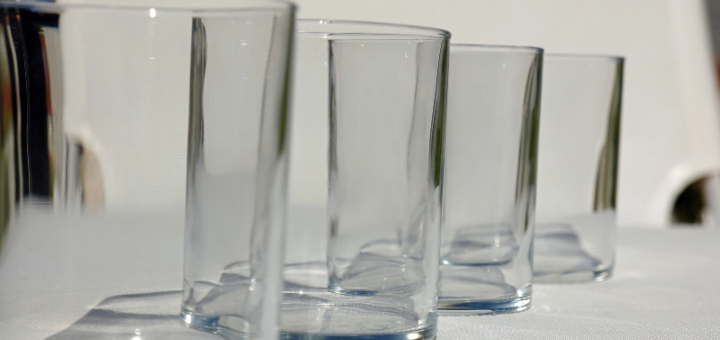
 Pixabay (2018), CC0 Public Domain[/caption]
On a car trip the other day, I overheard the following role play between my five-year-old son (whose pet name is Bobo) and my four-year-old daughter (whose pet name is Bean):
Pixabay (2018), CC0 Public Domain[/caption]
On a car trip the other day, I overheard the following role play between my five-year-old son (whose pet name is Bobo) and my four-year-old daughter (whose pet name is Bean):
Bobo: Mom, I need to go potty. Bean: Go potty. Bobo: Mom, I’m hungry. Bean: Here you go. Bobo: Mom, I need a napkin. Bean: Here’s one. Bobo: Mom, I need some water. Bean: Ok. Here.Real mom (me), sitting in the way front of the vehicle, is inwardly pleased that Bean is making Pretend Mom respond in such a nice, patient voice.
Bobo: Mom, I need some more water. Bean: I just gave you some. Bobo: I drank it all. I need more. Bean: Okay. Here. Bobo: I need more water again. Bean: Here you go.Here real mom (i.e., me) bursts into laughter, the kind of hearty guffaws that make tears stream down my face. It is so accurate to life.
Bobo (picking up speed): Mom, I need more water. More water. Mom. Mom. I’m thirsty. More water. More. Bean: Here. Here you go. Here. Here’s more.Suddenly struck by both the authenticity of what I was hearing (although in real life, anyone acting as impatiently as Bobo would have received a rebuke) and by how pathetic the life of Pretend Mom seems, Real Mom (me) starts sobbing. Aaaand scene.
 I have thought about this episode over the past few days. The problem is, no matter what lofty theology I have in my head regarding both the sublimity and centrality of the vocation of motherhood, some actual snapshots of motherhood look, well, pathetic. I do often have five children vying for attention and at least three vying for help. There are parts of my day when I experience nothing but incessant demands on my time, body, and mind. When it comes to motherhood, what is beautiful in the higher plane usually looks mundane on the physical level.
What else is there in our faith that appears humble but is actually glorious? Nothing less than the Blessed Sacrament. The Eucharist is, by appearances, humble bread and wine, the stuff of ordinary experience. But substantively, it is the very person of Jesus Christ given to us.
Motherhood at its best is the living out of the Blessed Sacrament in family life. What we do -- get water for children, wash clothes, read stories, snuggle, correct, cook, clean, and teach -- looks mundane. It looks humble, unimportant, of no real consequence. In fact, were we to hire out most of these jobs, we wouldn’t pay much more than minimum wage. It looks that ordinary. Just as belief in the Real Presence in the Eucharist takes faith, so too does the belief that the everyday tasks of motherhood mask the stuff of eternity.
I keep thinking of Na'aman in the Bible (2 Kings), who was the commander of the army of the king of Syria. Though a man of great importance, he was a leper. He learns from his wife’s servant that there is a prophet of the God of the Israelites who can cure his disease. So with his king’s blessing, he takes magnificent gifts with him and sets forth on his journey.
By and by, he is directed to the house of the Elisha. Elisha sends word through his servant that the great Na'aman must go down to the Jordan river and wash seven times to be cleansed of his leprosy.
Na’aman is furious. First of all, his dignity is injured that Elisha didn’t come out to greet him personally. But secondly, he is put off by the cure. It lacks flair! In fact, it is so ... ordinary. The Jordan, he notes, is dirtier than the rivers from his homeland. Only by his servants’ entreaties does he humble himself and do as he is told. And he is cured.
Will I, too, spurn the humble tasks of motherhood? They do, after all, usually lack flair. Will I refuse to do what clearly needs to be done because it seems somehow lower than what my pride demands? Or will I obey, go down to the muddy waters of the Jordan, and wash myself in the daily chores of motherhood? Will I believe that through obedience will come my purification?
Truly, what is going on in the invisible plane of motherhood is of incalculable importance. The pouring out of ourselves for love of others is our small echo of the great gift of Jesus in the Eucharist. It may look ordinary, but it is the stuff that civilizations -- and saints -- are made of.
I have thought about this episode over the past few days. The problem is, no matter what lofty theology I have in my head regarding both the sublimity and centrality of the vocation of motherhood, some actual snapshots of motherhood look, well, pathetic. I do often have five children vying for attention and at least three vying for help. There are parts of my day when I experience nothing but incessant demands on my time, body, and mind. When it comes to motherhood, what is beautiful in the higher plane usually looks mundane on the physical level.
What else is there in our faith that appears humble but is actually glorious? Nothing less than the Blessed Sacrament. The Eucharist is, by appearances, humble bread and wine, the stuff of ordinary experience. But substantively, it is the very person of Jesus Christ given to us.
Motherhood at its best is the living out of the Blessed Sacrament in family life. What we do -- get water for children, wash clothes, read stories, snuggle, correct, cook, clean, and teach -- looks mundane. It looks humble, unimportant, of no real consequence. In fact, were we to hire out most of these jobs, we wouldn’t pay much more than minimum wage. It looks that ordinary. Just as belief in the Real Presence in the Eucharist takes faith, so too does the belief that the everyday tasks of motherhood mask the stuff of eternity.
I keep thinking of Na'aman in the Bible (2 Kings), who was the commander of the army of the king of Syria. Though a man of great importance, he was a leper. He learns from his wife’s servant that there is a prophet of the God of the Israelites who can cure his disease. So with his king’s blessing, he takes magnificent gifts with him and sets forth on his journey.
By and by, he is directed to the house of the Elisha. Elisha sends word through his servant that the great Na'aman must go down to the Jordan river and wash seven times to be cleansed of his leprosy.
Na’aman is furious. First of all, his dignity is injured that Elisha didn’t come out to greet him personally. But secondly, he is put off by the cure. It lacks flair! In fact, it is so ... ordinary. The Jordan, he notes, is dirtier than the rivers from his homeland. Only by his servants’ entreaties does he humble himself and do as he is told. And he is cured.
Will I, too, spurn the humble tasks of motherhood? They do, after all, usually lack flair. Will I refuse to do what clearly needs to be done because it seems somehow lower than what my pride demands? Or will I obey, go down to the muddy waters of the Jordan, and wash myself in the daily chores of motherhood? Will I believe that through obedience will come my purification?
Truly, what is going on in the invisible plane of motherhood is of incalculable importance. The pouring out of ourselves for love of others is our small echo of the great gift of Jesus in the Eucharist. It may look ordinary, but it is the stuff that civilizations -- and saints -- are made of.
Copyright 2018 Amanda Woodiel
About the Author

Amanda Woodiel
Amanda Woodiel is a Catholic convert, a mother to five children ages 14 to 6, a slipshod housekeeper, an enamored wife, and a “good enough” homeschooler who believes that the circumstances of life—both good and bad—are pregnant with grace. Her oldest son was diagnosed with cancer in the summer of 2022, which is providing plenty of opportunities to test that hypothesis.


.png?width=1806&height=731&name=CatholicMom_hcfm_logo1_pos_871c_2728c%20(002).png)
Comments